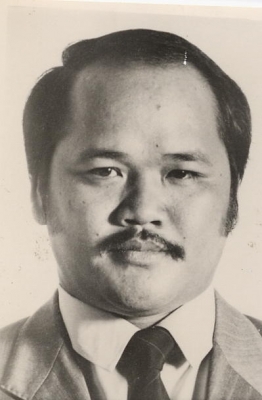
DATUK Mukhriz Mahathir was recently reported to have offered to release the confidential agreements between Tenaga Nasional Bhd and independent power producers (IPPs) to Parliament, but not to the public. This offer was immediately denounced by the DAP Member of Parliament (MP) Tony Pua as being “complete and utter bunkum”. Pua said even MPs cannot access documents protected under the Official Secrets Act (OSA) until and unless the cabinet declassifies these documents.
Pua, who is also DAP national publicity secretary, added that he hoped to receive an undertaking from the attorney-general that MPs would not be prosecuted under the OSA should they be given access to the confidential agreements prior to declassification.
Both Mukhriz’s and Pua’s statements raise an interesting point of law that has yet to be decided in court. Is an MP’s conduct in the House actionable for breach of the OSA?
Near-complete freedom
The general rule is that MPs have near-complete freedom of speech on the floor of the Dewan Rakyat, subject to the House’s disciplinary powers. No MP can be subject to any court proceedings for what she or he says in the House, or for how she or he votes when participating in the proceedings of Parliament or its committees. This guarantee is provided for under Article 63 of the Federal Constitution, which spells out the privileges of Parliament.
It is also a widely known and accepted rule that an MP’s immunity ceases the moment she or he steps out of Parliament. So, MPs may scream and shout at the top of their lungs within reason in the House on any topic. But MPs would have to, like the rest of us, watch what they say the moment Parliament is no longer in session.
Unless, of course, we wind the clock back to the 1960s. The late MP DR Seenivasagam made allegations of corruption against a minister in the House, then repeated his allegations outside the House upon the minister’s dare, and was duly sued. In that era, the then Federal Court dismissed the minister’s suit and upheld the allegations to be justified. This led the minister to resign from cabinet. Ah, the good old times, but I digress.
Exceptions
Still, there are exceptions to the general rule that MPs are immune within Parliament. An MP does not enjoy immunity if charged with an offence under a law passed by Parliament under Article 10(4) of the Federal Constitution or under the Sedition Act 1948. An MP’s freedom of speech also does not extend to the right to call for the abolition of our constitutional rulers.

These limitations were previously challenged in court. One famous incident was the one involving Sabah MP Mark Koding, who called in Parliament for the abolition of vernacular schools. He was duly charged for sedition, and the court convicted him of the offence despite his attempt to plead parliamentary immunity.
In a sense, we could argue that Malaysia has improved in its fundamental liberties by leaps and bounds. A topic that previously caused an MP to be charged and convicted is now openly raised by certain parties from time to time without any repercussions whatsoever.
OSA in the House?
Which leads us back to our original discussion: Is an MP’s conduct in the Dewan Rakyat subject to the OSA? The way to answer this question is to ask whether the OSA is a law passed under Article 10(4) of the Federal Constitution.
Article 10(4) states that in imposing restrictions “in the interest of the security of the Federation or any part thereof or public order”, Parliament may pass law prohibiting the “questioning of any matter, right, status, position, privilege, sovereignty or prerogative established or protected by provisions of Part III, Article 152, 153 or 181”. Part III concerns citizenship issues, Article 152 concerns the national language, Article 153 concerns quotas, and Article 181 relates to the rulers’ sovereignty.
From a cursory reading, it would seem that questioning the agreements between TNB and the IPPs cannot be said to be an issue related to citizenship, national language, quotas or the rulers’ sovereignty. Discussion on such an agreement, therefore, ought not to be prohibited in Parliament.
Mukhriz has already gone on record as wanting to be “transparent” with MPs. Perhaps the opposition MPs ought to take him up on his offer and question these agreements in the House despite having no undertaking from the attorney-general that action will not be taken against them. I am certain the late DR Seenivasagam would have done exactly just that.
On an end note, it is somewhat disappointing for Mukhriz, who is deputy international trade and industry minister, to want to be “transparent” with the MPs, but not with the rest of us, the public. To reveal partially and not in full – oh, what a tease! ![]()
Chan Kheng Hoe is in the midst of forming a new non-governmental organisation called “Everyone Are Together Saying OSA Unfair Terribly”, better known by its acronym “Eats Out”.


a coin will forever has two sides says
@Chan Keng Hoe
You want to have the cake and eat the cake at the same time ? […]